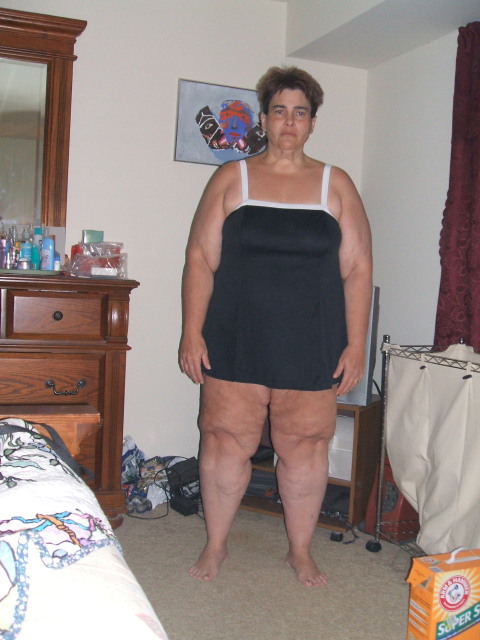after gastric weight loss
Question
Help please if you can. I am an emotional eater and I know boredom plays it's part as well. I had Roux en Y five years ago went from 420 to 230. I am back up to 295 and depressed to the max. I did really super at first went the whole nine yards. I can't exercise a lot now because my hip is so very painful and needs replaced but expert said I'm too young (50)I expect I'll be in a wheel before too much longer. I desperately need to get on track. Can you assist me in some way.
Hi Cindy,
I understand your concerns. They are so common with RNY post-ops. It seems that weight regain is more and more common. There are a number of things that usually occur when we regain weight. (Notice I said when "we" regain weight....I did too. I lost it and so can you!!)
Even with your weight regain, you've still lost 125 pounds which is excellent. All you need to do is to get back on track. While that sounds simple, I know from personal experience and working with clients that it isn't.
I can relate to your statement that you are an emotional eater as I am too. Many of us that are/were morbidly obese are emotional eaters. As you've already discovered, boredom is a big, big part of emotional eating. When we are bored, our minds are free to think of eating to fill that time. Unstructured time can result in boredom which leads to head hunger and emotional eating cravings.
Although I have plenty of things to do, there are even more things that I DON'T WANT to do so boredom sets in. What I've done is to make a list of distractions. When the boredom starts or I feel the urge to emotionally eat, I turn to my long list of things to do other than eat. Some of the things on my list are to call a friend, do a puzzle, play a video game, cruise the Internet, send an e-mail to friends or catch up on my e-mails, do a crossword or find a word puzzles (something to occupy my hands), go outside and sit on my porch and read a book or magazine, etc. You might make your own list of distractions. The urge will pass if you give it enough time.
Another strategy is to define and become aware of what is going on. Emotional eating is a response to an uncomfortable emotion. If you can become aware of the emotion (angry, upset, disappointed, sad, lonely, tired, etc.) then you can deal with that emotion. Rather than turn to food that merely numbs it, deal with it so you're in control rather than food. It is a hard habit to break but if you exercise that muscle of dealing with your emotions rather than succumbing to them, it becomes easier and you don't have that strong urge to eat your emotions.
Exercise is another word for activity. Try to get some light hand weights and lift those. You could get two cans of food and lift those if you prefer. Any activity and movement you can do will help you with your food choices, increase your metabolism and lift your mood and spirits.
Something that I've done when I want to get back on track is to make a list of the habits I've slipped into that I want to break. Rather than get back on track all at once, if that is too overwhelming, take one habit a month. For example, for March, stop drinking with your meals (if you are); for April, take your vitamins' for May, drink 64 ounces of water each and every day, and then progress to change a habit each month. Before you know it, you will have created a momentum of being on track month by month.
You've done the first step by reaching out here. You are aware of what to do and expressed your desire to get back on track. Think back to what you did right after you had surgery and how you felt. You were motivated. Think back to that time and recreate that for yourself now. Remember, you did it once and you can (AND WILL) do it again.
All the best,
Cathy, CLC
Certified Life Coach, Weight Loss Surgery Coach
Certified Back On Track Facilitator
Related Articles
-
is AchievOne protein ok for me?
QuestionI have heard great things about AchievOne protein, and ha
-
advice on which surgery to get
QuestionI am a 41 year old female with a BMI of 46, 5-7 320
-
am I eligible
QuestionI am 57 weigh from 220 to 240 it fluctuates i am diabetic
-
GASTRIC BYPASS/OHIP
QuestionI am going to see my Doctor this Thursday to try and pers
-
weight loss after surgery
Questioni had my bypass 5 months ago and i have only lost 2 stone
-
Revsion ... MBG vs. RNY
QuestionI am a failed lap band patient just a year out and Im loo
More Great Links

